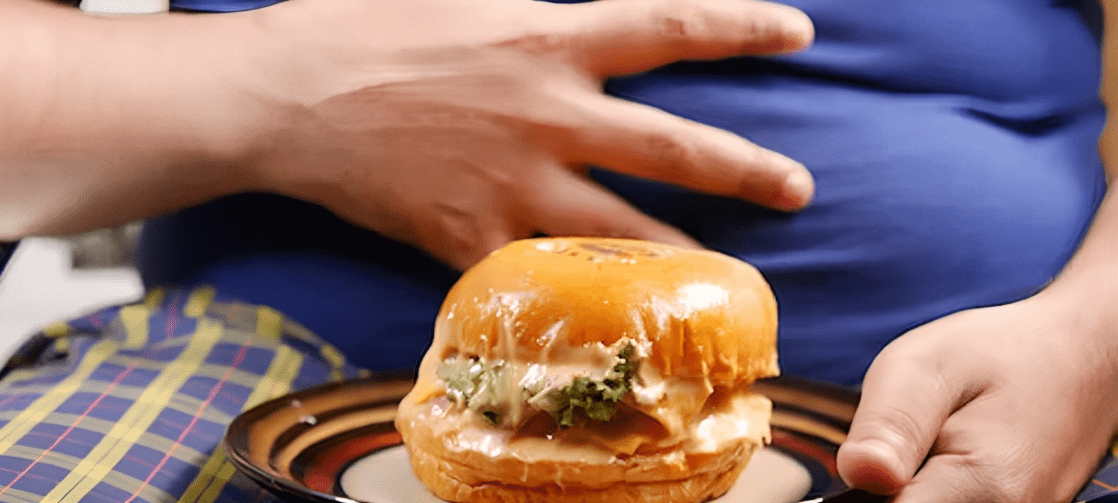
Do You Gain Weight After Gallbladder Removal?
The surgical operation of gallbladder removal, also known as cholecystectomy, includes the removal of the gallbladder. This tiny organ has a function in holding the bile the liver produces and releasing it to help in digestion, notably in breaking down lipids. Due to changes in digestion and metabolism, many people are concerned about gaining weight following gallbladder surgery.
Understanding the Gallbladder’s Role
Bile, which is kept in the gallbladder and is necessary for breaking down fats during digestion, is stored there. A fatty meal causes the gallbladder to discharge bile into the small intestine, where it aids in emulsifying fats to make them simpler for your body’s enzymes to digest and absorb.
Effects of Gallbladder Removal on Digestion
Digestion can vary after gallbladder removal, specifically how lipids are processed. Bile drips into the small intestine continually in the absence of a gallbladder, as opposed to being released in reaction to meals. Your body may find it difficult to efficiently emulsify higher quantities of dietary fat due to this constant influx of bile. As a result, a condition called as post cholecystectomy syndrome may be experienced by certain people, which can cause symptoms including diarrheas, bloating, and pain after ingesting fatty meals.
Weight Gain After Gallbladder Removal
Let’s now discuss the often asked question, “Do people gain weight after gallbladder removal?” It’s not as easy as yes or no. Changes in nutrition, metabolism, and lifestyle are just a few of the variables that might cause weight gain following gallbladder surgery. While the gallbladder aids in the digestion of fat, its removal does not inevitably result in weight gain, which is a crucial point to make.
Factors Influencing Weight After Gallbladder Removal
Changes in digestion and fat absorption:
Absence of concentrated bile release: The gallbladder plays a crucial role in storing and releasing bile, a digestive fluid produced by the liver. Bile contains bile salts that help break down fats in the small intestine. When you eat a fatty meal, the gallbladder contracts and releases a concentrated amount of bile, aiding in the emulsification of fats. After gallbladder removal, there is a continuous, slower release of bile from the liver into the small intestine. This can lead to less effective fat emulsification and digestion, potentially causing some dietary fats to pass through the digestive tract without being fully absorbed.
Impact on fat emulsification and micelle formation: Micelles are small structures formed in the digestive process, where bile salts surround and solubilize fat molecules, making them easier to digest and absorb. The absence of concentrated bile release from the gallbladder can affect the efficiency of micelle formation. This can result in reduced absorption of certain fat-soluble vitamins (A, D, E, and K) and dietary fats, potentially leading to changes in nutrient availability and energy absorption.
Dietary modifications post-surgery
Adjustments to fat intake: After gallbladder removal, individuals often need to make dietary adjustments to manage fat digestion. High-fat meals can be harder to tolerate, as there’s a reduced capacity to release concentrated bile for efficient fat breakdown. Many people find that reducing their intake of saturated and trans fats while opting for healthier fats (such as those from nuts, seeds, and fatty fish) can help prevent discomfort and potential weight gain.
Increased fiber consumption: Fiber-rich foods, such as fruits, vegetables, whole grains, and legumes, play a significant role in digestion. Consuming more fiber can help regulate bowel movements, prevent constipation, and promote gut health. Additionally, fiber can help slow down the absorption of nutrients, including fats, which might be beneficial for those with compromised fat digestion post-gallbladder removal.
Hormonal and metabolic changes
Influence on appetite-regulating hormones: The hormones that control hunger and fullness are thought to be affected by the gallbladder. Studies have suggested that gallbladder removal may have an impact on hunger- and satiety-related hormones such ghrelin and cholecystokinin, while the precise processes are still unclear. fluctuations in these hormones may impact eating habits and caloric intake, which may effect weight fluctuations after surgery.
Potential impact on metabolic rate: The mechanisms through which your body transforms food into energy are referred to as metabolism. Through changes in bile flow and digestion, gallbladder removal may affect metabolic rate. Following surgery, some people report changes in their metabolism, which may alter their energy expenditure and, in turn, how they manage their weight.
Strategies for Weight Management
For those concerned about weight gain after gallbladder removal, several strategies can aid in maintaining a healthy weight:
- Balanced Diet: Focus on a well-rounded diet that includes a variety of nutrient-rich foods such as fruits, vegetables, lean proteins, and whole grains. This approach provides the body with essential nutrients and supports overall health.
- Portion Control: Since the body’s ability to handle large amounts of dietary fat might be compromised post-surgery, practicing portion control can help prevent discomfort and potential weight gain.
- Regular Physical Activity: Regular exercise is essential for preserving a healthy weight and sustaining general wellbeing. A healthcare practitioner should be consulted to decide on an appropriate exercise programmed.
- Stay Hydrated: Adequate hydration supports digestion and can help prevent overeating. Drinking water throughout the day can contribute to a sense of fullness.
- Gradual Changes: If you’re considering dietary changes or embarking on a weight management plan, make gradual adjustments. This approach allows your body to adapt and helps you build sustainable habits.
Tips for Managing Weight After Gallbladder Removal
- Gradual Dietary Changes: Gradually reintroduce fats into your diet, starting with healthier options like avocados, nuts, and olive oil. This can help your body adapt to the changes.
- Fiber-Rich Foods: Incorporate fiber-rich foods like fruits, vegetables, and whole grains. Fiber aids digestion and promotes a feeling of fullness.
- Stay Hydrated: Drinking enough water supports digestion and can help prevent overeating.
- Consult a Professional: If you’re concerned about weight management post-surgery, consider consulting a registered dietitian or healthcare provider. They can provide personalized guidance based on your needs.
In conclusion, weight increase is not always the result of gallbladder removal. Changes in digestion and metabolism are possible, but they are only a few components of the intricate weight control equation. People may traverse the post-gallbladder removal phase while keeping a healthy weight and general well-being by making deliberate food choices, being active, and getting professional help when necessary.
Dr. Aiman Khan
Dr. Aiman Khan is a dedicated healthcare professional and talented content writer, blending her medical expertise with her passion for writing. Holding a degree in Unani Medicine (BUMS), Dr. Khan has embraced her role as a part-time content writer at DiseaseInfoHub, where she contributes insightful articles on health and medical topics.




